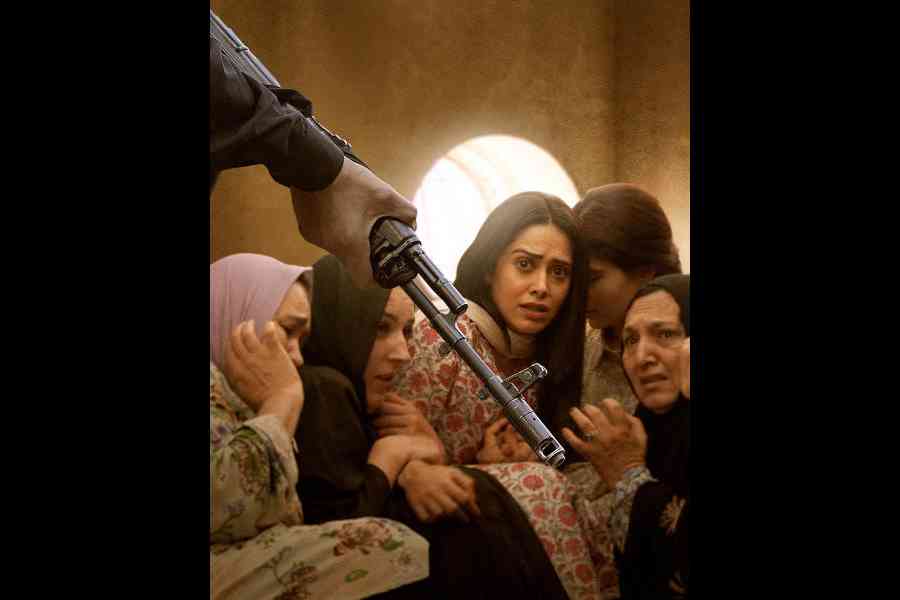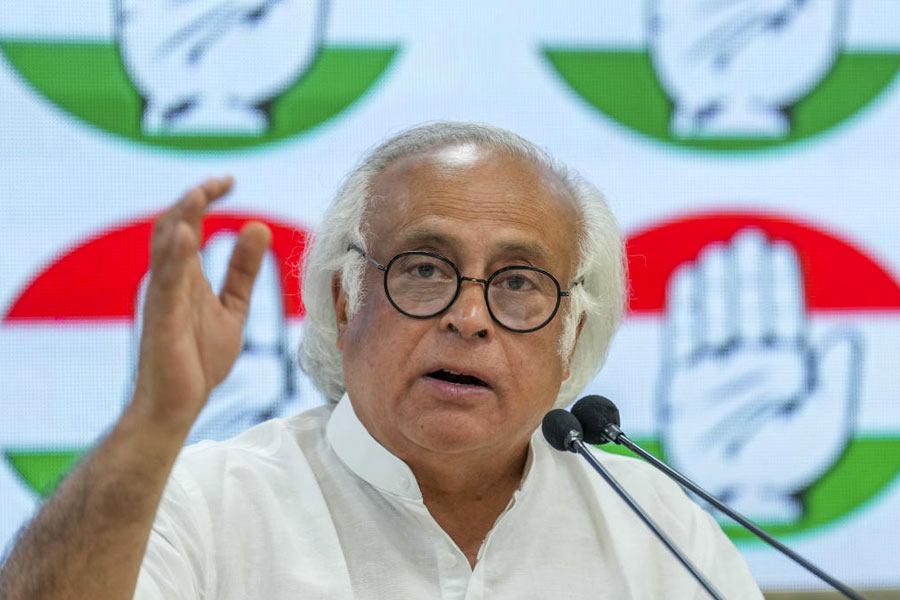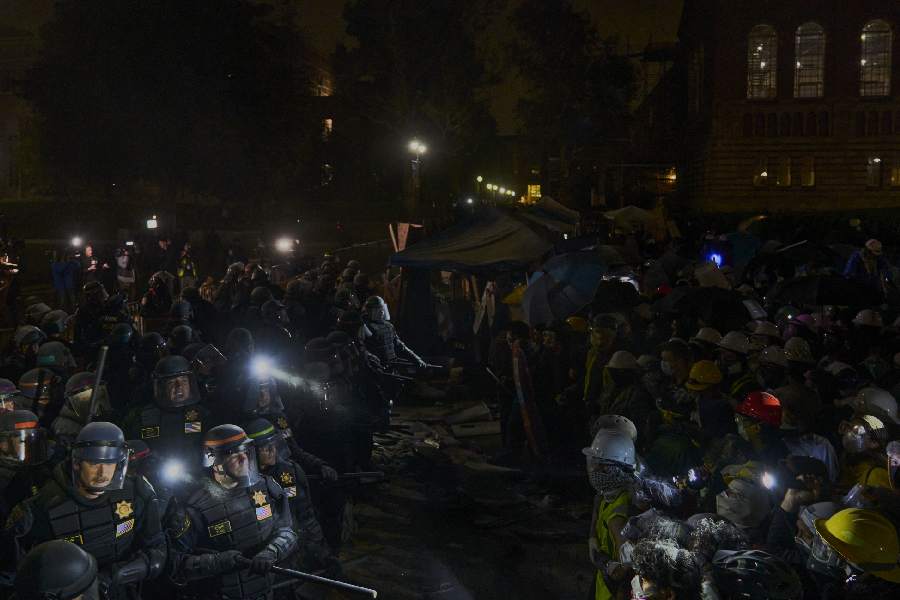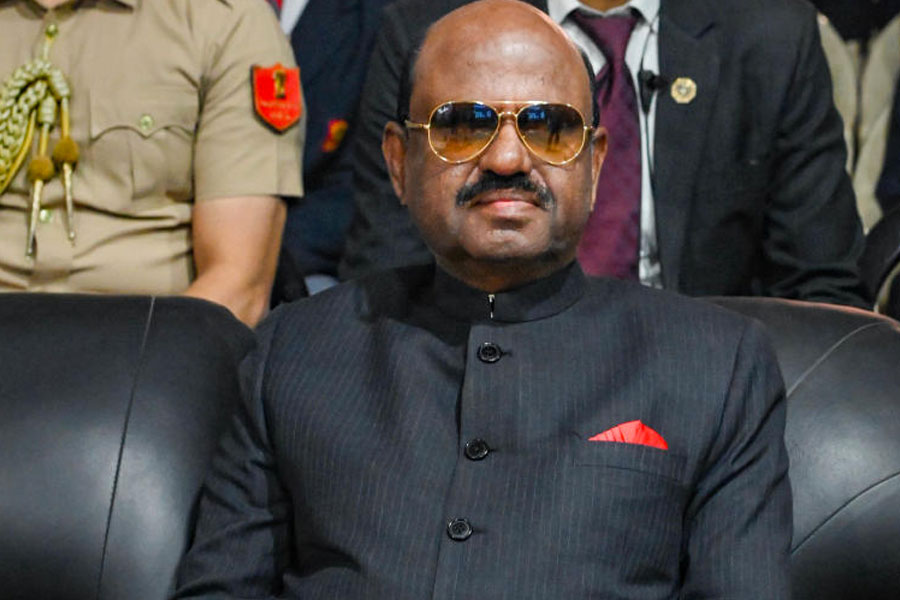Inspired by the true story of a woman from the Middle-East, debutant film-maker Pranay Meshram’s Akelli paints a vivid and gruesome picture of Iraq under the Islamic State, even as it celebrates the fighting spirit, courage and survival instincts of an Indian woman who gets trapped in the country and is captured by the terrorist outfit.
Not being a fan of expressions of terror or violence in any form of art (or life), this reviewer had entered the theatre with a clear mental preparation of how to take in the horrors that lay ahead. Yet nothing can prepare you for the scenes of ghastly crimes against humanity committed by the militants in cold blood. His objective clear from the outset, the director launches into shock-inducing sequences straight away, with absolutely no attempt to cushion the blow for the viewer. Grisly images of beheadings, shootings and blowing up a child in the middle of a thoroughfare only prepare you for what else you can expect in the 127 minutes of its running time.
Some relief though is provided in the form of a budding romance between the film’s protagonist Jyoti Arora (Nushrratt Bharuccha) and Rafeeq (Nishant Dahiya), the manager of the garment factory where she has taken up a job. Jyoti’s backstory is dealt with briefly but it is enough to give you an impression of a brave, upright young woman who will not hesitate to stand up for others, though it might put her own well-being at stake. The only breadwinner in a family consisting of her elderly mother and orphaned niece, Jyoti is however depicted as unusually naive and gullible for an educated woman when she allows herself to be deceived by an unscrupulous employment agent into accepting a job in Mosul, Iraq. Once she understands the reality of the country’s situation, she is torn between a desire to return to India and a hope that things may work out well for her in Mosul after all.
War in the film thus also becomes a symbol for the conflict she experiences within. However the latter ‘conflict’ is short-lived as she is captured and imprisoned along with many other women by the ISIS (Islamic State of Iraq and Syria) in a swift and sudden attack on her workplace. Watching the relentless, disturbing scenes of terror and bloodshed one can only wonder how taxing it must have been for the actors who performed in them, especially Nushrratt and the two young girls she later meets (who are also subjected to inhuman torture, become her allies and stay with Jyoti almost till the end). Physically, emotionally and psychologically drained by the barbaric assaults of her captors, Jyoti’s refusal to give up hopes of escape is awe-inspiring, to say the least. The red car which she rides when she first enters the country and then drives to escape from her captors becomes the symbol of her hope and strength. Like her, the car becomes bruised, battered and marked with gunshots, but it faithfully performs its job of taking her to a relatively safe place.
Besides revealing the terror in 2014 Iraq, Akelli also offers its point of view about the Indian media and government. Whereas the latter’s response to the crisis is represented as slow, inefficient and inadequate, the electronic media is portrayed as unethical and irresponsible. The final, painful moments of Jyoti’s ordeal (reminiscent of the Hollywood thriller Argo) also make sure that the audience is not denied a tense, edge-of-the-seat experience till the end.
Piya Roy
I liked/ didn’t like Akelli because... Tell t2@abp.in










